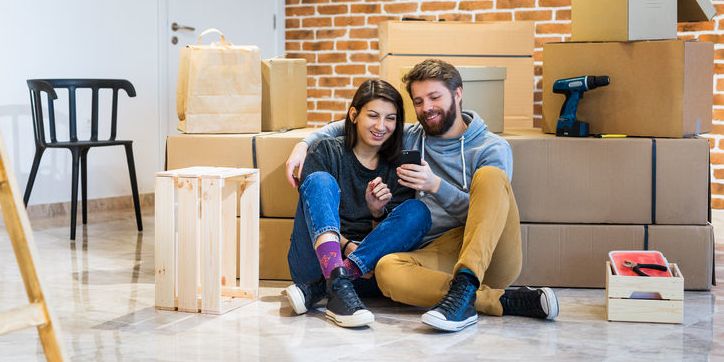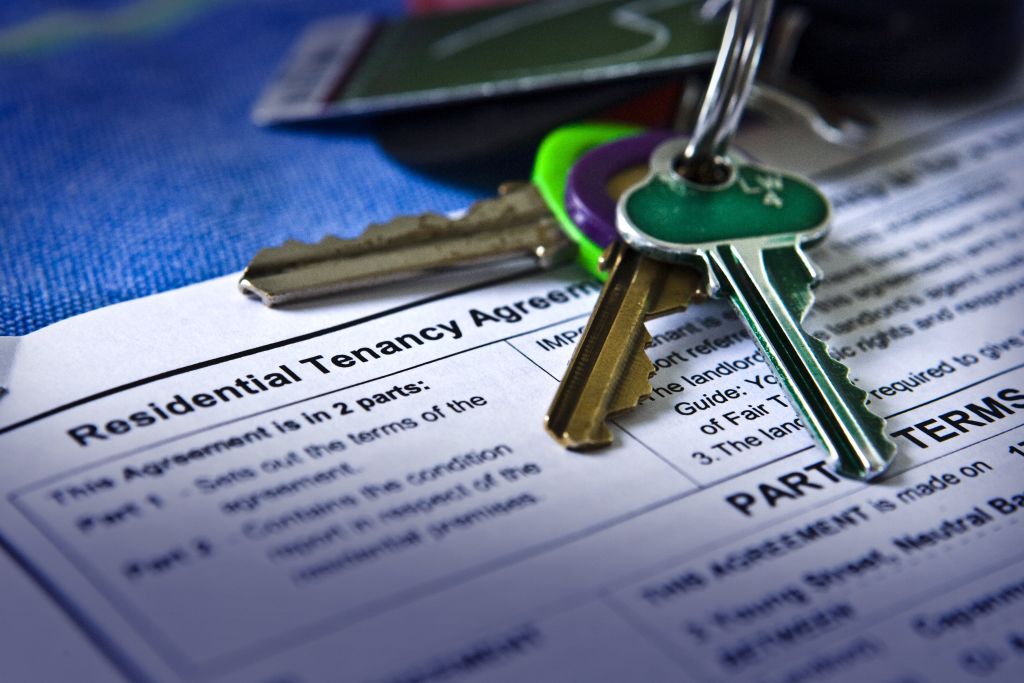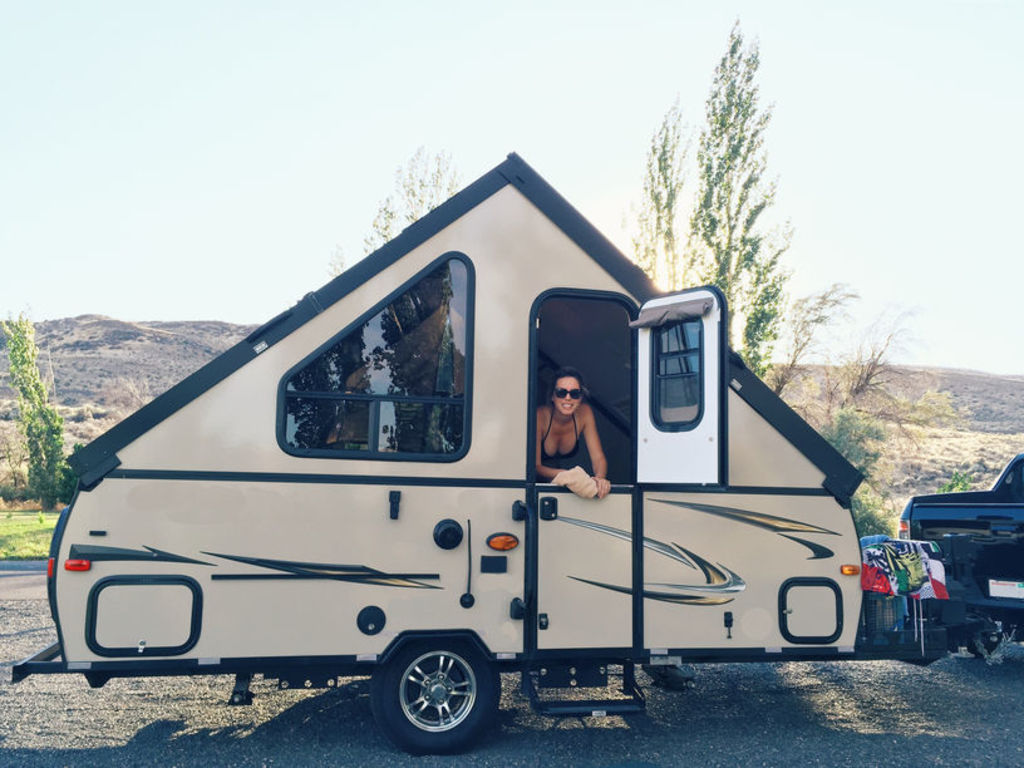What to do with your home when travelling long-term

If you’re a home owner planning a long-term trip, one of the biggest decisions you’ll face is what to do with your home while you’re away.
While home ownership used to be seen as putting an end to the possibility of long-term travel, that is far from the truth now. We spoke to people who found creative solutions so that their travel dreams could come true.
Renting your house out: “It meant our mortgage was taken care of”
When Rachel Wilson* and her partner decided to travel around Australia in their caravan, they’d already owned their home for more than a decade.
“We wanted to come back to it, because it was perfect for us and we were worried about not being able to afford another home later,” she says.
So they packed away all their furniture and belongings in Wilson’s parents’ shed, and asked a local real estate agent to rent out their house.
“It all worked really well,” Wilson says. “You hear a lot of horror stories, but our experience was a dream. It meant our mortgage was taken care of and we could work a little bit during our travels just to pay for the next part of the adventure.”

She adds, “The neighbours weren’t very happy about it, though. They hated the tenants; apparently they were quite noisy every weekend!”
Bradley Willmott, managing director of Pursuit Property Advisory, says keeping your furniture in the house is another option if you’re considering renting it out.
“You can put your home up as a furnished rental for the period of time you’ll be away. But you still have to remove most of your possessions so that the house is back to the bare minimum of furnishings, which can bring in the cost of a storage unit,” he says.
However, there are costs associated with renting your property out. “You have to keep paying your insurance, and you need to pay the fees for a property manager,” Willmott says.
It’s important, too, that this property manager is someone you have faith in, so you have the peace of mind of knowing your home is being treated well in your absence.
Listing your home on Airbnb: “Get at least 70 per cent more than renting it out”
Angela Carrick, owner of Air Design Australia, helps people who want to list their homes on Airbnb while they travel.
This is a decision being made by young families who hit the road, baby boomers who head north for winter, and young professionals seeking an adventure. The key, Carrick says, is to see this as an option if you’re travelling for six months or more; any less isn’t always worth the effort.

“You need to clear out any precious items, and lots of people store these in a garage or a spare bedroom,” says Carrick.
“It’s a good way to gain a really good income while you’re travelling. In the capital cities, we manage around a 95 per cent occupancy rate, and they get at least 70 per cent more than renting it out in a traditional way.”
And if you’re worried about people mistreating the home, Carrick says this is rare. “Homes are almost always looked after well, and because they’re cleaned so regularly, you don’t come home to it looking worn down.”
Carrick adds that it’s hard to have your home on Airbnb when you’re trying to manage it yourself from the road, which is where the professionals come in.
House-sitting: “Someone I trusted was looking after the place”
Anthony Bianco, who runs the blog The Travel Tart, recently took off for a year’s travel.
He wasn’t too fussed about having someone in his house for that time, but his insurance company said otherwise.
“It turns out that if the house is unoccupied for a certain number of consecutive days [this varies between different insurers] and then something happens, like the house burns down, the claim won’t be covered,” he says.
“I considered a number of options, but I had a good friend who was looking for a place to live. That meant I didn’t have to move my stuff out, and someone I trusted was looking after the place. For her, it meant she could live there rent-free, and just pay the gas and electricity bills.”
The downside of this decision is that the traveller has to still pay the mortgage while travelling. Bianco says, “My mortgage at the time was pretty small so it wasn’t an issue”.
Willmott says another popular option is home swapping: “If you can work out where you’ll be travelling, you can organise a home swap for free with someone who is coming to your area. That’s a really cost-effective way to do it.”
Selling your home: “Selling up cut us free to travel”

Another option is to sell up before hitting the road, if the idea of not having a home to come back to doesn’t make you too nervous.
This is the big decision that Sarah Lawrie, from Wandercooks, and her partner made before heading overseas for 12 months. “We decided to sell our houses and use the money from the sales to pay off our debts [including HECS] and fund the travel.”
But the decision wasn’t just about money. “It was also about flexibility. Selling up cut us free to travel without having that end point of having to come back,” Lawrie says.
Lawrie and her partner have bought a new home since returning. “We were lucky, because we got back and purchased just before everything [around mortgages for self-employed people] was tightened up,” she says.
Willmott agrees that timing is everything. “At the moment, there are lots of areas where property prices have flattened out or are falling. If you’re going to sell up and go travelling, and then buy again in six months, odds are that at the moment you’ll be at the same price level or a little bit less,” he says.
It’s best to seek advice in your area before selling to travel. “If you’re going to do it, do it in a falling market,” Willmott says.
*Names changed by request
We recommend
We thought you might like
States
Capital Cities
Capital Cities - Rentals
Popular Areas
Allhomes
More
- © 2025, CoStar Group Inc.









